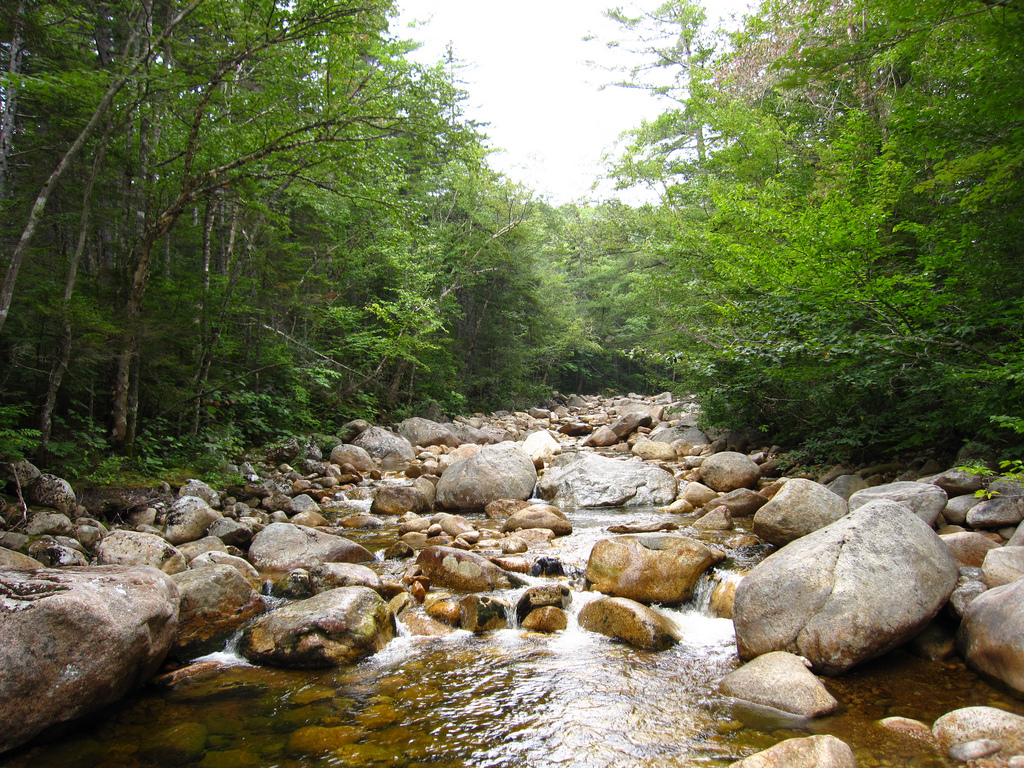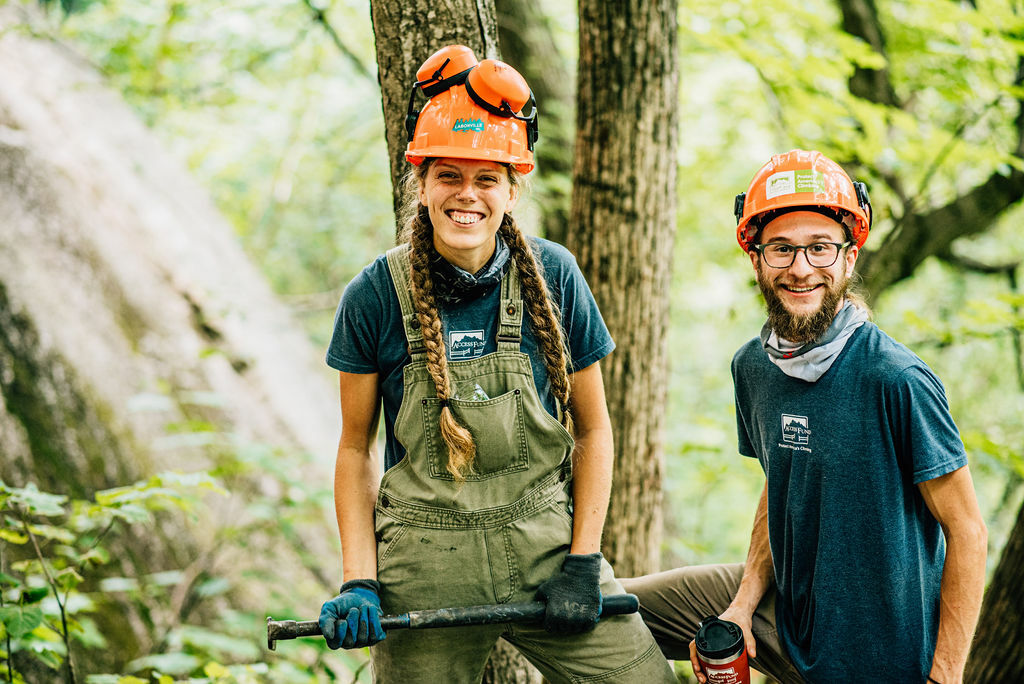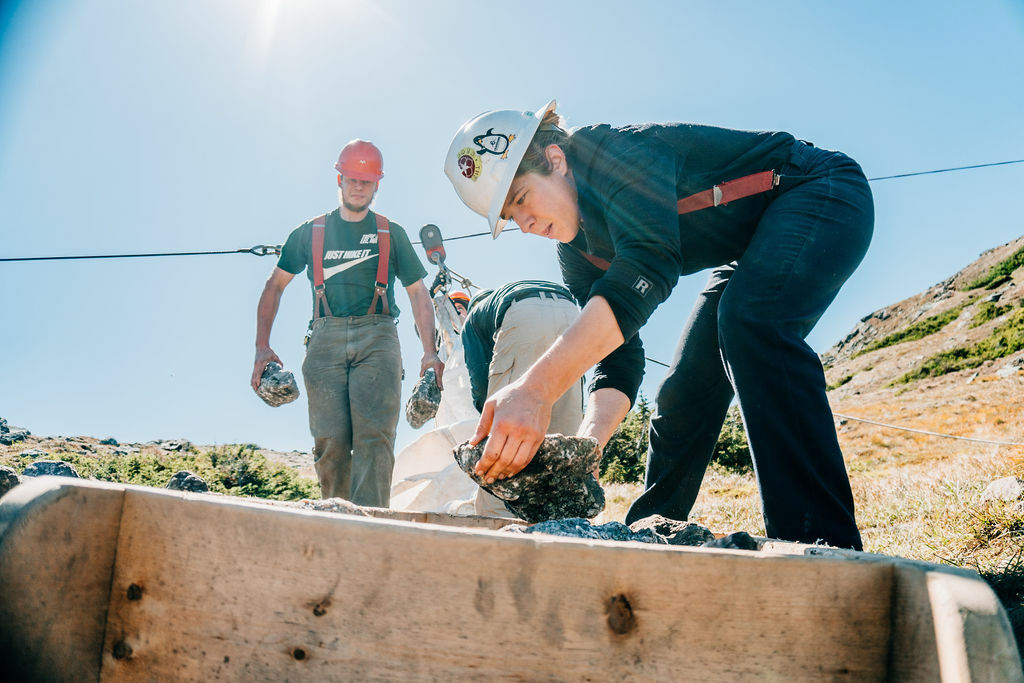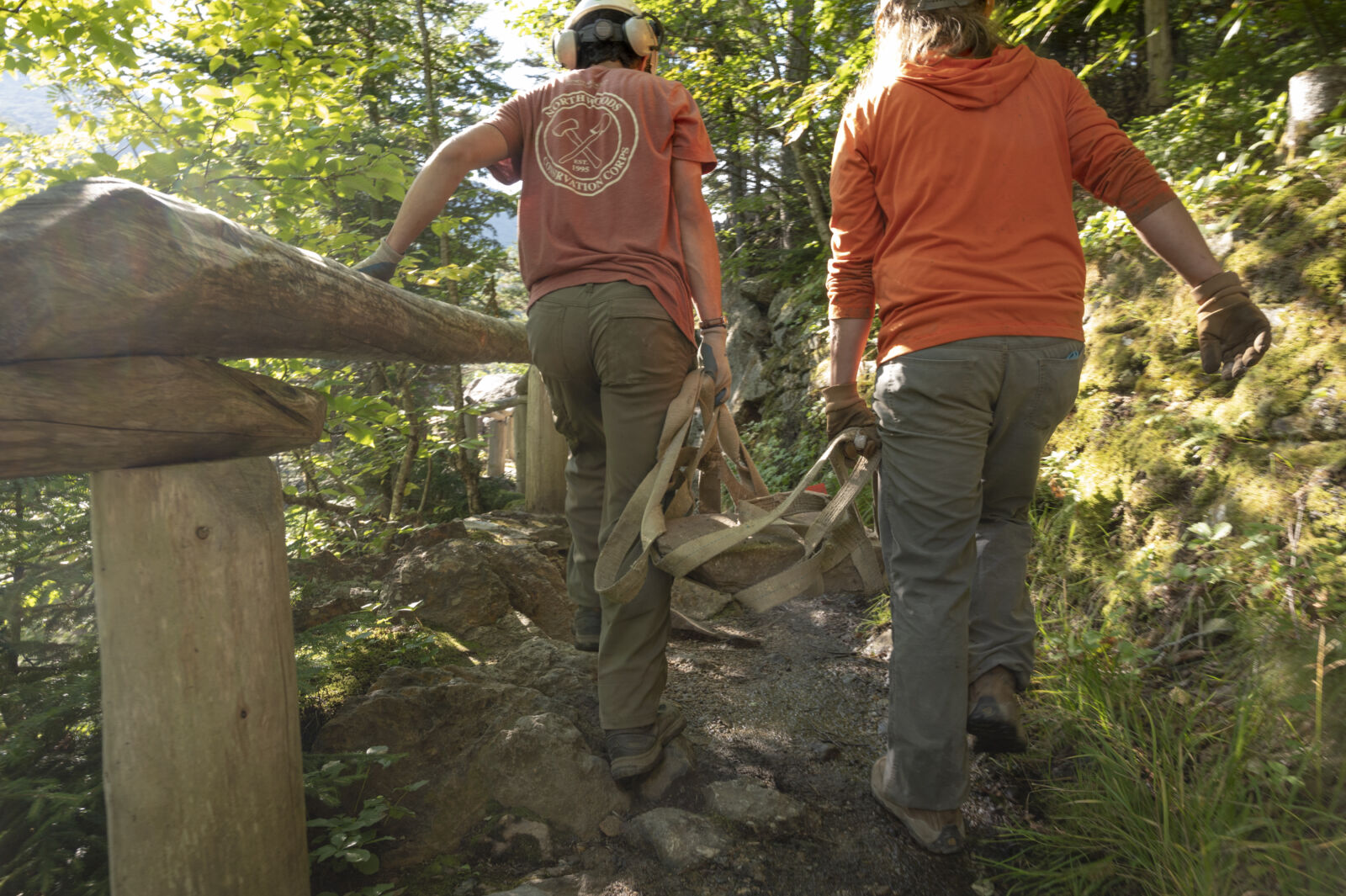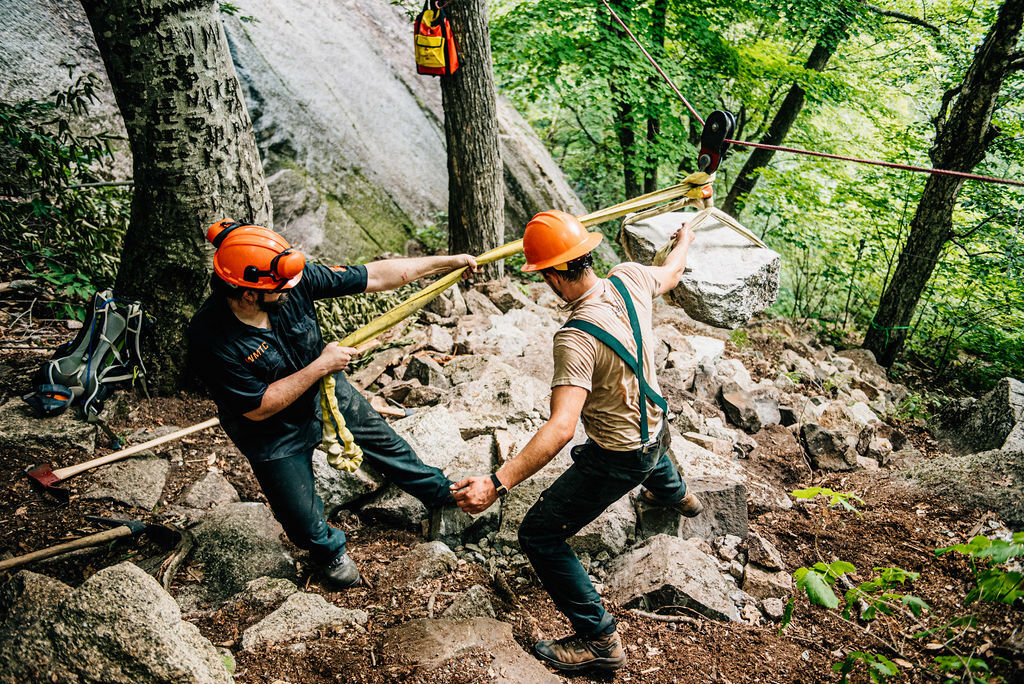To celebrate the 2018 WMNF centennial and uphold the stewardship commitment to restore and protect these lands for the next 100 years, the NFF has planned activities and projects leading up to this important milestone through the “Honoring the White Mountain Forest Legacy” initiative.
Hosting millions of annual visitors and providing the base for Northern New Hampshire’s tourism economy, the White Mountain National Forest has earned its special place in the National Forest System. Hikers from near and far come to explore more than 1,200 miles of trails, including 100 miles of the Appalachian Trail and 48 peaks over 4,000 feet in elevation.


